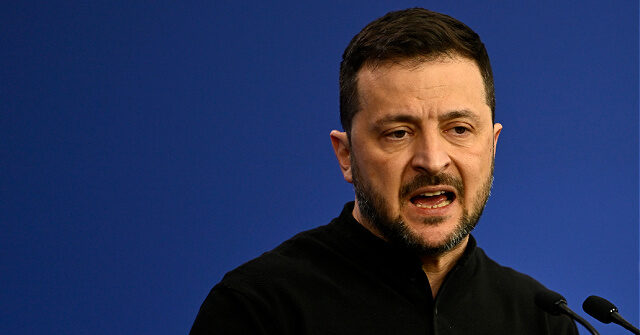In a significant development in the ongoing conflict between Ukraine and Russia, Ukrainian President Volodymyr Zelensky has offered strong praise for Donald Trump, the newly elected president of the United States. Zelensky’s commendations come at a crucial time as Ukraine continues to seek support from the international community to counter Russian aggression. During a recent meeting on the sidelines of the reopening of Notre Dame de Paris, Zelensky expressed his gratitude towards Trump for his resolute stance in supporting Ukraine. He emphasized that the collaboration of global powers is essential in addressing the threat posed by Russia, highlighting that Putin’s biggest fears lie with Trump and Chinese influence. This positive rapport between Ukraine’s leadership and the incoming U.S. administration could signify potential shifts in diplomatic relations and military support for Ukraine.
Zelensky’s comments convey a sense of urgency in rallying international support for Ukraine amidst claims that the incoming Trump administration may reconsider its financial commitment to the war effort. In a world where military funding decisions are intensely scrutinized, Zelensky articulated a vision of how the U.S. can play a pivotal role in achieving remarkable breakthroughs that other nations have not managed to secure. By pinpointing decisiveness as a critical element in defeating Russia, Zelensky appears to be positioning both himself and Trump as leaders capable of catalyzing change in the current impasse. He firmly believes that only a strong, unified response from the U.S., Europe, and allies worldwide can restore peace and security to Ukraine and the broader region.
Meanwhile, the framing of peace negotiations remains a contentious issue. Trump has previously suggested that Ukraine might be ready to negotiate a resolution, which could entail an immediate ceasefire. However, Zelensky is steadfast in his belief that any peace agreement must honor Ukraine’s territorial integrity, firmly rejecting the idea of compromises that would normalize Russian occupation. Ukraine’s insistence on reinstating its internationally recognized borders reflects a broader commitment to sovereignty and justice. This position takes into account not only the immediate security concerns but also the long-term implications of any agreements made, stressing that a failure to confront aggression would have detrimental effects on European security at large.
As 2025 draws nearer, various stakeholders, including Zelensky, have recognized that it could be a pivotal year for resolving the conflict. Trump’s campaign promises to swiftly end the war resonate with Zelensky’s desire to see proactive measures take effect. In parallel, Poland’s Prime Minister Donald Tusk has signaled a potential timeline for initiating negotiations, suggesting that discussions could commence in the winter of 2023. The Polish presidency of the European Council places it in a central role to influence future diplomatic efforts, underlining the increased focus on establishing a framework for peace talks around the ongoing war.
Amid these diplomatic dialogues, questions linger regarding the effectiveness of proposed peace initiatives. Zelensky’s position emphasizes the need for definitiveness in any agreements reached, as ambiguity could undermine the fragile path towards reconciliation. The Ukrainian government continues to press the United States and Europe for clear commitments that guarantee support, reflecting a broader need for international solidarity against authoritarian regimes. The need for a “unity of America, Europe, and everyone in the world who values security” becomes paramount as both Ukraine and its allies grapple with the implications of Russia’s actions and the potential for a resolution.
In conclusion, the evolving dynamics between Ukraine and the United States, particularly in light of Trump’s return to the presidency, presents opportunities and challenges. Zelensky’s appeal for unity cultivates a foundation for cooperation, urging a cohesive strategy to confront the ongoing Russian threat. As various actors, including Polish leadership and Trump himself, begin to contemplate potential negotiations, the focus remains on a definitive and just outcome that recognizes Ukraine’s sovereignty while ensuring stability in the region. The next couple of years will likely be decisive for both Ukraine and the broader geopolitical landscape, with international support playing a crucial role in shaping the future of the conflict.

